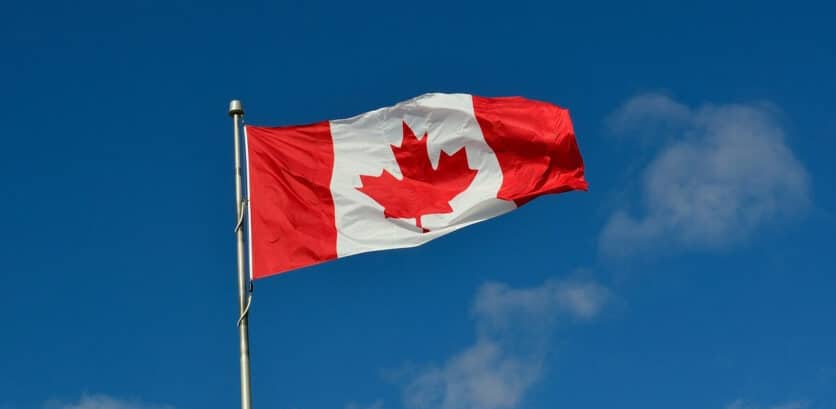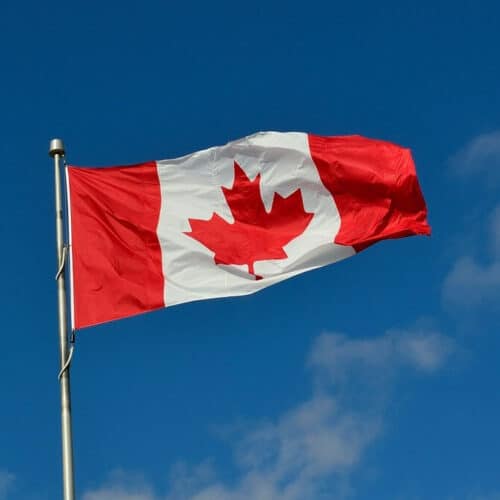On the surface, Canadian English looks a lot like its UK and US counterparts. But if you dig a little deeper, you may be surprised to discover its many distinct features arising from the country’s fascinating history, unique geography and the diverse backgrounds of its inhabitants.
Debbie is a Canadian copywriter and translator based in Berlin, Germany. She is fascinated by etymology and loves to learn new languages.
As both a Canadian and a linguist, my work sometimes brings me to reflect on the similarities and differences between the English that I learned growing up and the varieties spoken in other parts of the world, particularly in the UK and the US. I always knew there were minor spelling differences and colloquial terms, but apart from the obvious slang, I was largely unaware of how distinctive some of these differences can be. The features of Canadian English were not explicitly taught in school. Only after I started travelling and getting to know Anglophones from other parts of the world did it dawn on me: Not everyone sits on a chesterfield or eats freezies in the summer – who knew?
British versus American: duking it out linguistically
The more I delved into the historical background of our divergent strain of English, the more intrigued I became by the rich, at times dramatic, events that added so much local colour to our way of communicating in Canada’s most spoken official language.
Canada seems to rely on a blending of many things British and American, including forms of government, certain institutions and, of course, language. When it comes to Standard Canadian English, it’s neither here nor there. While we use the American spelling for many words, such as realize and organization, we use the British spelling for others (centre, colour). The tricky part is knowing which ones. Sometimes both are “correct” and at the discretion of the writer; these are preferred spellings – neither option is really set in stone. But far from being just a random mishmash of the two, Canadian English also incorporates loanwords from French as well as Aboriginal and immigrant languages, contributing terms to our vocabulary that are uniquely Canadian. The name of the country itself likely comes from the Iroquois word kanata, meaning “village.” Certain Canadian words are not used at all in the UK or the US – for example, trainers or sneakers are often referred to as runners.
Sometimes it’s just about the money
According to Professor Stefan Dollinger of the University of British Columbia, Canadian English is more “American” as a whole due to the large numbers of United Empire Loyalists who fled the United States and settled in Canada in the late 1700s. The British influence can be traced to the second wave of immigration from England, Scotland, Wales and Ireland in the 1800s. Thanks to Canada’s close economic relations with Britain as one of its colonies and, later, a Commonwealth country, many British terms were adopted and are still in use, such as cheque instead of the American check.
But Canada and the US have also historically been close trading partners, forging special agreements in different sectors – notably the automotive industry. This is why Canadians use the American spelling of tire rather than the British tyre; the same applies to the words for many other car parts.
And the winner is…
You might wonder which ties are closer. If you didn’t happen to have a Canadian linguist on hand, whom would you choose to handle a Canadian English localisation or copywriting job – a UK or US English native speaker? Given that the Canadian colonies were historically part of the British Empire, we might believe that Canada’s cultural and linguistic connection to Britain is stronger. On the other hand, the American media has had an enormous impact on its northern neighbour over the years. While Canada does have its own high-quality media companies and broadcasting, it is dwarfed by America’s output in terms of volume and scope. Everything from film, TV series, advertising and radio makes its way across the border from the US, sometimes directly via American stations and channels, escaping localisation. This powerful, unfiltered media influence, along with the geographical proximity of the US, has undoubtedly shaped the way Canadians speak contemporary English.
Nonetheless, an American linguist might lack awareness of other varieties of English. Britons, like New Zealanders and Australians, are islanders and in the minority with their variety of English, while Americans dominate by sheer numbers. Varieties of English spoken outside the US are therefore less likely to be relevant to Americans. For this reason alone, an American English native may not be the best choice for a Canadian English job, while a British English speaker may have a greater overall sensitivity to the subtleties of lesser-known varieties of English.
Aiming for authenticity
When writing copy for a Canadian target group, we need to take both linguistic and cultural realities into account. Not only should texts be written in the Canadian style and with the correct grammar, but they also need to come across as authentic in terms of tone and content. For this, cultural proximity is key. These days, our links to the UK are a fading memory. Older generations may still recall a time when the British monarchy was more visible in Canada, but once the Canadian Constitution was patriated by the Canada Act in 1982 and our July 1st national holiday renamed Canada Day, the political and administrative ties to the old country were effectively severed. Since then, our UK connection has grown ever more remote. And at any rate, Britain was always geographically distant.
On the whole, there is no denying that Canada shares its popular culture with Americans to a greater extent than with the UK. The Canada-US border was even more porous in the past, with fewer restrictions on the flow of people and ideas crossing it. This is why, at a psychosocial and cultural level, a US English copywriter may have an advantage. On the other hand, the US as a country has highly specific features, such as the divisive nature of its politics – which has played out very visibly over the past decade – flagship cities like New York and Los Angeles, Ivy League universities and the US dollar, which continues to dominate the global economy and cast a shadow over the lower-valued Canadian dollar. And these aspects create a vast gulf between the two countries in the minds of many people.
So who would be the best choice for that writing assignment, a UK or a US English native speaker? All said, I personally think it would be a tie. Which is why you should probably look for a Canadian copywriter!

